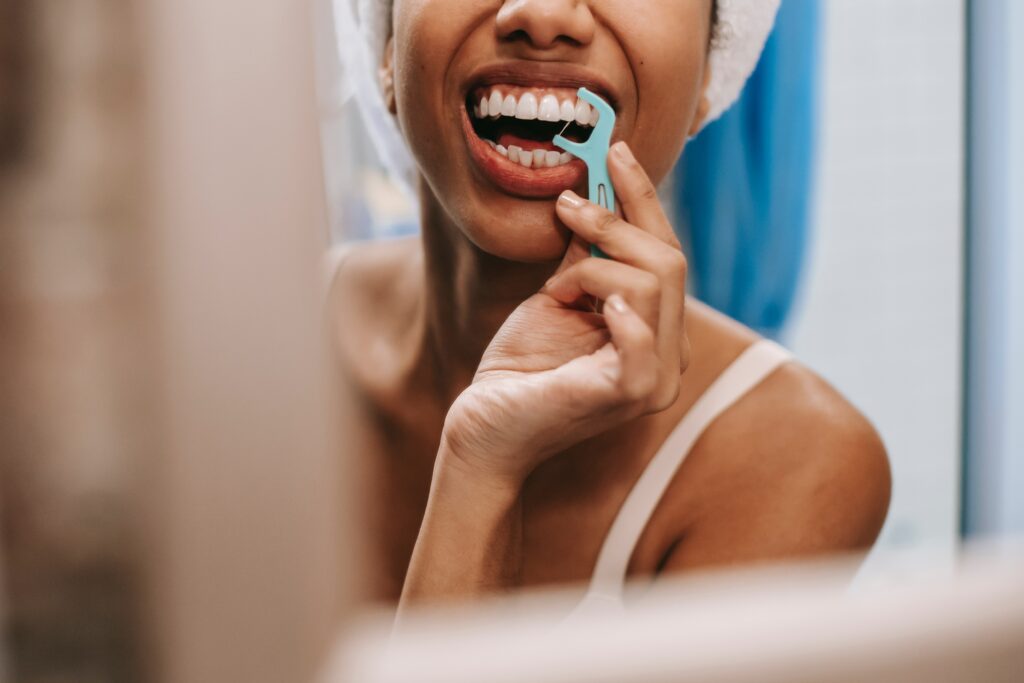
Halitosis (bad breath or mouth odour) is a common oral health problem we all experience; such as the early morning smell we have because we did not brush our teeth the previous night, an unfriendly gesture from a friend or colleague at our breath, the constant need to have a chewing gum to refresh our breath etc. That said, the first step to treating bad breath is finding its cause. This blog will explore the dental causes of bad breath and its treatment.
Plaque, Calculus and Tartar
When we do not brush and floss our teeth daily, food debris deposited around the teeth is converted to plaque by bacteria. The progression of this process leads to calculus or tartar formation and gum disease with the end result being bad breath. Also, build-up on the tongue produces significant bad breath when not cleaned regularly.
Periodontitis (Gum Disease)
Periodontal (gum) disease is caused by the release of toxins from bacteria that irritate the gums, resulting in bleeding gums, pocket formation between teeth, tooth mobility and bad breath.
Caries (Tooth decay), oral infection, tumors and cancers
Tiny holes in your tooth become bigger, collecting food particles and bacteria which are fermented to cause bad breath. Dental infections such as recurrent pericoronitis, long standing tooth decay leading to abscess formation and pus discharge.
Dentures (Dental prostheses)
For denture wearers, poorly cleaned and ill-fitting dentures trap odour-causing bacteria and food particles underneath dentures to produce an unpleasant smell.
Dry Mouth
Saliva cleanses and removes bacteria around the teeth.This accounts for the reason why majority of us have “morning breath;” as the production of saliva is reduced during sleep.
Smoking
This is known to cause dry mouth and also increase the development of gum disease and bad breath.
Other causes of halitosis
Medical conditions
Aside from the oral tissues, some medical conditions such as uncontrolled diabetes, liver and kidney disease, asthma, tonsillitis, sinus infection, and many others. Notably, some prescription medications also contribute to bad breath by causing dry mouth or produce chemicals that do.
Certain Foods and Drink
The most common foods known to cause transient halitosis are onions, garlic, and spices. In addition, alcohol and coffee also promote bacteria that cause bad breath.
Treatment Options
The use of sugar free gums and mouthwashes only covers up the problem temporarily. For most reported cases of halitosis, adopting a proper dental hygiene routine such as brushing twice daily and flossing improves bad breath, however if the problem persists, schedule an appointment with your dentist for a thorough examination. Your dentist is skilled and trained to recognise the various causes of bad breath and he or she will refer to the appropriate medical team for management.
